|
Paul Beck
Distinguished Professor Emeritus of Social and Behavioral Sciences
"Rachel Crooks: Why Trump accuser is running for office"
|
|
Richard Gunther
Professor Emeritus of Political Science
"The Political Impact of Fake News"
|
|
John Mueller
Senior Research Scientist
"Why are Americans still so afraid of Islamist terrorism?"
|
|
David Stebenne
Professor of History and Law
"'Lack of candor': Reason for firing McCabe one of most serious in FBI"
|
Mershon Memo is a weekly e-mail newsletter distributed by the Mershon Center for International Security Studies, part of the
College of Arts and Sciences at The Ohio State University.
|
|
|
Wednesday, March 28, 2018
3:30 p.m., 120 Mershon Center, 1501 Neil Ave.
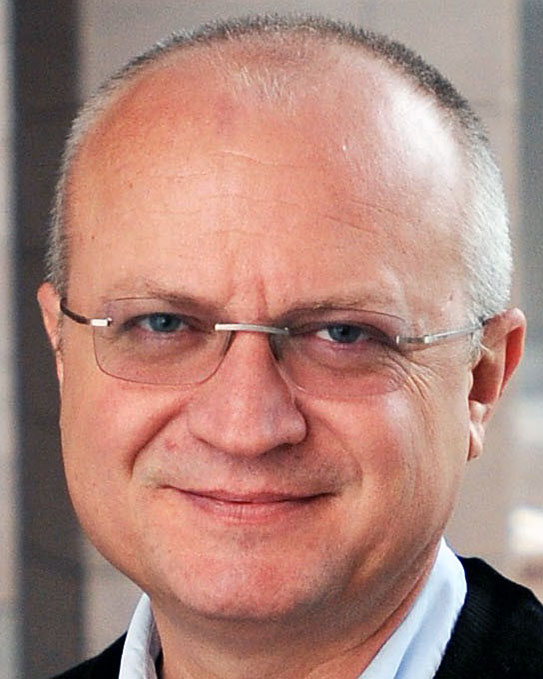 Ali Çarkoğlu
Ali Çarkoğlu is professor of international relations at Koç University in Istanbul, Turkey, where he has been
dean at the College of Administrative Sciences and Economics since 2013. His recent research focuses on voting behavior, party systems and political parties, religiosity, social capital, public opinion, and Turkish politics. At this event, Çarkoğlu will explore the influence of ideology and identity on public opinion about the use of force to support protesters with political claims in a neighboring state by
discussing three nationally representative field survey experiments conducted in 2014-15 outside the United States. Read more and register at
go.osu.edu/carkoglua
|
Thursday, March 29, 2018
The Future of the All-Volunteer Force and Democracy in America
8:30 a.m.-5 p.m., 120 Mershon Center, 1501 Neil Ave.
Co-sponsored by John Glenn College of Public Affairs and AVF Forum
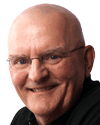 The United States fought the long and costly wars in Iraq and Afghanistan with an all-volunteer force, even as some service members were deployed for three and even four tours of duty. In the wake of these wars, it is appropriate and useful to discuss the state of America's all-volunteer force. How well has it worked? Will it work in the future? Is it fair, efficient, and sustainable? This conference, organized by retired Maj. Gen.
Dennis Laich (left),
Richard Herrmann, and
Trevor Brown, is part of a series of national events examining the all-volunteer force and democracy in America. It features well-known scholars and commentators on military affairs including Andrew Bacevich, Boston University; retired Col. Larry Wilkerson, College of William and Mary; and Lawrence Korb, Center for American Progress. Read more and register at
go.osu.edu/FutureofAVF
|
Friday, March 30, 2018
4 p.m., 347 University Hall, 230 N. Oval Mall
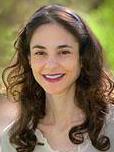 Jenann Ismael
Jenann Ismael is professor of philosophy at University of Arizona. Most of her work falls into two classes. The first concerns the philosophy of physics including the structure of space and time, the foundations of quantum mechanics, the role of simplicity and symmetry in physics, and questions about the nature of probability, natural laws and causal relations. The second includes mind, cognition, phenomenology, and the nature of perspective. In this talk, Ismael will point out the connection between fatalism and determinism by linking determinism to totality and totality to transcendence to provide insight into the sort of freedom we have. Read more and register at
go.osu.edu/ismaelj
|
Sunday-Monday, April 8-9, 2018
Quantum Theory and the International
Organized by Alexander Wendt
120 Mershon Center, 1501 Neil Ave.
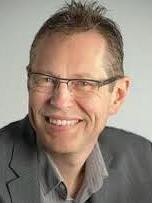 Scientists have long thought that quantum physics -- the bizarre and fantastic world of non-locality, indeterminacy, and wave/particle duality discovered in the early 20th century -- was confined to the sub-atomic level. In the past decade however, there have been growing hints in fields such as biology and psychology that this foundational classical assumption is mistaken. If evidence continues to mount of quantum effects at the human level, then the social sciences today could be in a situation similar to physics in 1900 - based on a simple but profound mistake, with a revolution just around the corner. This workshop will begin to examine what a quantum social science might look like in practice, with a focus on international politics. Read more and register at
go.osu.edu/quantumtheory
|
 |
 |
|
Mershon Center explores future of U.S. military, democracy
|
|
Date: Thursday, March 29, 2018
Location: Mershon Center for International Security Studies, 1501 Neil Ave.
When the United States ended the draft and moved to an all-volunteer military in 1973, most political and military leaders assumed that the nation would reactivate the draft in the event of another major war. Instead, the U.S. fought long and costly wars in Iraq and Afghanistan with an all-volunteer force.
How well has this military model worked, and will it work in the future? Is it fair, efficient and sustainable?
On March 29, the Mershon Center for International Security Studies will host a symposium exploring these questions with input from national policymakers, military officers and academic experts.
Students attending the conference will be asked to break into working groups to discuss the issues raised and generate solutions, which they will present to a panel of experts.
Rick Herrmann, Arts and Sciences Distinguished Professor and chair of the Department of Political Science, sheds some light on some of the pressing topics that will be discussed at the event.
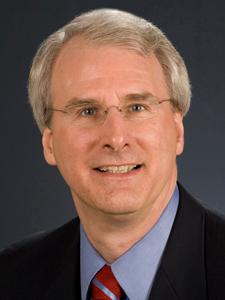 Why did the U.S. move to an all-volunteer force? Why did the U.S. move to an all-volunteer force?
The U.S. abandoned the draft in 1973 due to the mounting unpopularity of the Vietnam War, moral and economic objections, a lessening demand for manpower and a general desire for change.
What are the arguments for keeping an all-volunteer force?
It promotes professionalization in the military and longer-term training. It does not compel people to serve in the military who don't want to, though men between the ages of 18 and 25 are still required to register with the Selective Service System should there be an emergency. It provides people more freedom of choice.
What are the arguments against an all-volunteer force?
Less than 1 percent of the nation's population is active military personnel. What experts are saying is that the current system is very expensive and probably not sustainable unless we reduce the demand on these people. In addition, the burden is not shared equitably and affects lower income groups more than wealthier ones.
Would you say this is a partisan issue?
No. One of the main problems with this issue is that it's not perceived to be a problem. This is a complicated issue and it's not on most people's minds.
|
 |
 |
Tuesday, March 27, 2018
"The Merchants of Siberia: Trade in Early Modern Eurasia"
12:30 p.m., 168 Dulles Hall, 230 Annie & John Glenn Ave.
Sponsored by Russian, East European, and Eurasian History Seminar
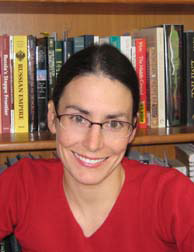 Erika Monahan
Erika Monahan is associate professor of Russian history at University of New Mexico. She will speak about her recent book,
The Merchants of Siberia: Trade in Early Modern Eurasia (Cornell, 2016), which received an honorable mention for the Early Slavic Studies Association Book Prize. In the book, Monahan reconsiders commerce in early modern Russia by reconstructing the trading world of Siberia and the careers of merchants who traded there. She demonstrates that trade was a key component of how the Muscovite state sought to assert its authority in the Siberian periphery. By contextualizing merchants and places of Siberian trade in the increasingly connected economies of the early modern period, Monahan argues that Russia was not the "outlier" that most 20th century characterizations portrayed.
|
Thursday, March 29, 2018
"The U.S. and China: Prospects for Trade and Security Relations"
11:30 a.m., The Boat House, 679 W. Spring St.
Sponsored by Columbus Council on World Affairs
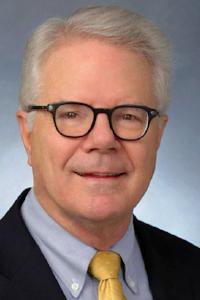 David M. Lampton
David M. Lampton is Hyman Professor and director of China Studies at the Johns Hopkins School of Advanced International Studies. Having started his academic career at The Ohio State University Lampton is chairman of the Asia Foundation, former president of the National Committee on United States-China Relations, and former dean of faculty at SAIS. He is the author of
Same Bed, Different Dreams: Managing U.S.-China Relations, 1989-2000 (2001);
The Three Faces of Chinese Power: Might, Money, and Minds (2008); and
The Making of Chinese Foreign and Security Policy (editor, 2001). Hampton will discuss
what lies ahead in the U.S.-China relationship a
gainst a backdrop that includes nuclear threats between North Korea and the United States, an uncertain future in multilateral trade agreements around the globe, and critical midterm elections in the United States.
Read more and register
|
Friday, March 30, 2018
"Urban Climate Vulnerability Analysis for Sustainable Science"
3:30 p.m., 1080 Derby Hall, 154 N. Oval Mall
Sponsored by Department of Geography
 Rinku Roy Chowdhury
Rinku Roy Chowdhury is associate professor in the Graduate School of Geography at Clark University. Her research focuses on the institutional, ecological and spatial diversity of human-environment interactions in forest-agricultural mosaics, urbanizing ecosystems and coastal mangrove vulnerability to anthropogenic and climate change.
She is active in the U.S. Long-Term Ecological Research (LTER) network (primarily affiliated with the Florida-Coastal Everglades and Baltimore Ecosystem Study sites) and as a member of the Global Land Project's scientific steering committee. At this event, Chowdhury will examine urban resilience to climate extremes by integrating the Vulnerability Science and Socio-Ecological-Technological Systems (SETS) frameworks.
Read more (pdf)
|
 |
Fulbright Week takes place March 26-30
The Office of International Affairs, the Graduate School and the Undergraduate Fellowship Office have combined efforts to plan a week full of events including, workshops, information sessions and open houses, to inform the campus community about the opportunities available through the Fulbright and Fulbright-Hays programs. All students, faculty and staff are welcome to participate in any of the Fulbright Week sessions held March 26-30, 2018. For details about events and a full calendar of Fulbright Week activities, visit
go.osu.edu/Fulbright
|
Apply for the Shafik Gabr Foundation Fellowship
Each year the
Shafik Gabr Foundation organizes the Gabr Fellowship, a dynamic exchange program with a mission to empower talented emerging leaders in the Western and Arab Worlds. This annual intensive program brings together approximately 20 young professionals from the United States and Egypt, and has expanded over the years to include candidates from the United Kingdom, France, Lebanon, and Jordan.
 |
|
 |
Shafik Gabr Foundation Fellows 2015 |
The fellows, through workshops, seminars, networking events, and round-table discussions, engage with distinguished leaders in the arts, science, law, media, business, and government from the United States and Egypt, in an effort to build bridges of understanding and facilitate substantive dialogue.
Fellows not only build leadership skills and an understanding of the other country, but also immerse themselves in complex policy matters, cultural values, and business development. Through this experience, fellows will have a more nuanced understanding of their foreign peers and be better prepared to pursue united, innovative solutions to the most pressing challenges of today and tomorrow.
Following the program, fellows will work collaboratively and implement Action Projects that help to close the divide between the East and West and stem the erosion of public understanding.
If you are between the ages of 24-35 and would like to apply, contact Courtney Joline at [email protected] or 202-853-8092. For more information, please see the application, which outlines prerequisites for the potential applicant, and brochures from previous years that illustrate the fellowship experience. |
 |
|
|